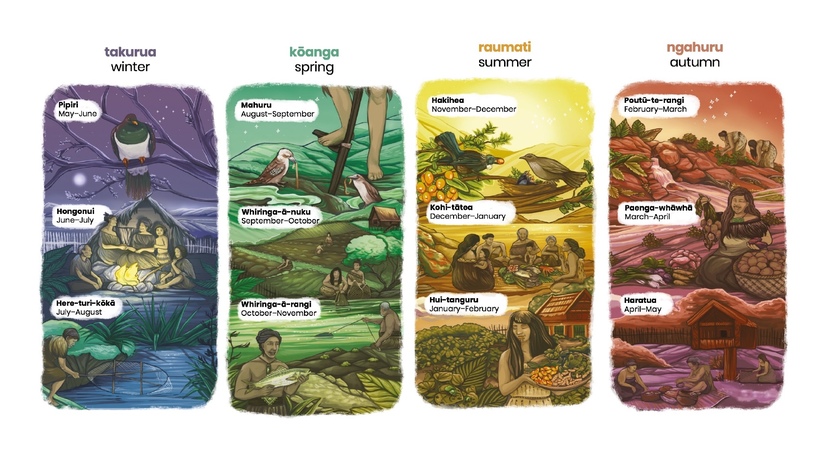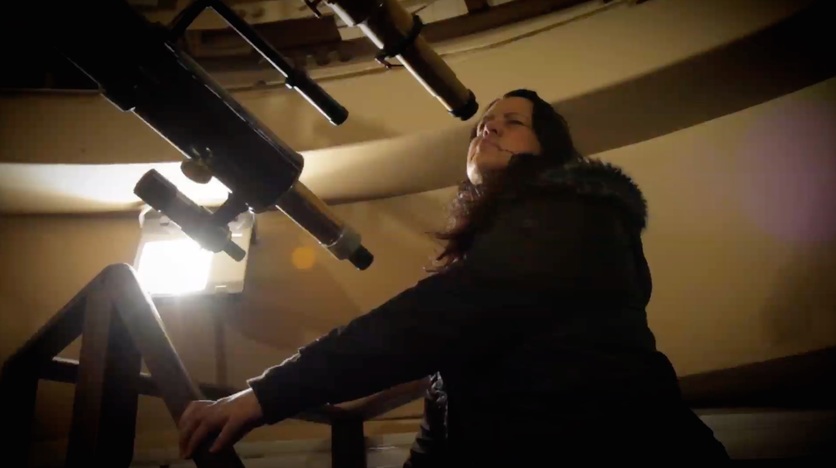This Connected article looks at the research by Dr Pauline Harris, a scientist of Rongomaiwahine and Ngāti Kahungunu descent. She is working with a team of researchers to collect and record mātauranga from iwi and hapū about plants and animals in Aotearoa. The team is using a computer program to record the mātauranga and connect it to particular times and places in history. The hope is that this information will help to increase understanding of how climate change is affecting Aotearoa New Zealand’s wildlife and ecosystems, knowledge that can then be used to plan for change.
Just because something has been written down by one group of people, that doesn’t mean it’s more valuable than something that has been passed down orally by another group of people.
Dr Pauline Harris
The article also offers insights regarding mātauranga Māori and maramataka – the Māori lunar calendar.
Key ideas covered are:
- scientists collect data to help solve environmental issues
- data, gathered using careful observations over long periods of time, can help us to identify patterns and relationships
- there can be more than one explanation for observational data
- scientists are more likely to consider an idea if it is supported by a broad range of evidence that has been developed from a large sample size.
Check your school library for the article from the 2018 level 3 Connected journal ‘Cracking the Code’, download it as a Google slide presentation from Tāhūrangi or order it from the Ministry of Education.
If you look and you don’t know that something is being affected then you can’t help it. You’ve got to know about it – to know what to do about it.
Dr Pauline Harris
Teacher support material
The teacher support material (TSM) can be downloaded from Tāhūrangi (Word and PDF files available). It includes three learning activities:
- Local stories of change
- New technologies – taking a stand
- Making and recording observations in our local environment.
The activities include extension ideas and related resource links.
Related content
For more on Dr Pauline Harris, check out this Hub's video on Tātai arorangi. You can also see videos of Pauline in the article SMART – Māori astronomy.
The Connected article Te tapa ingoa explores how early Māori went about naming and grouping the plants and animals they found around them.
Explore more examples of how mātauranga Māori and science can interact to create new knowledge and guide further action in these Connected articles:
Project Mātauranga is a television series that investigates Māori world views and methodologies within the scientific community and looks at their practical applications.
Meet researcher Dr Priscilla Wehi – she is applying mātauranga Māori principles and knowledge to her research into Aotearoa New Zealand’s ecological past. Amber McEwan is researching whether mātauranga Māori might help save New Zealand’s freshwater mussels.
Meet kairangahau Māori Milly Grant-Mackie. Milly is interested in sea-level rise using methodologies guided by kaupapa Māori and science.Explore Mātauranga Māori and science further and discover more in our recorded PLD webinars Matauranga Māori and Mātauranga and the Living World. For more ideas see Resources with Māori content – this article curates a wide range of resources including articles, teaching and learning activities and videos.
Read Scientists and tamariki working together – one of the PSP Ahi Pepe MothNet project goals is to connect with mātauranga Māori.
The article Observation and science explores the role of observation in greater detail.
Check out our entire range of Connected articles here. We’ve curated them by topic and concepts.
Activity ideas
The Sustainable Seas National Science Challenge uses EBM – ecosystem-based management as a holistic and inclusive approach for managing an ecosystem. The student activity Environmental thinking and planning with ecosystem-based management (EBM) uses EBM components to consider how a local area of significance could be managed, or it can form the basis for planning a local environmental project.
In the article Harakeke under the microscope, learn about the differences between harakeke varieties on the microscopic scale and explore how mātauranga Māori can shed light on scientific research.
Useful links
Read about Dr Pauline Harris appointment in 2022 as the MacDiarmid Institute new Deputy Director Māori.
See the 2021 report He huringa āhuarangi, he huringa ao: a changing climate, a changing world from Ngā Pae o te Māramatanga and Manaaki Whenua providing guidance for Te Ao Māori on climate change adaptation and mitigation.
The Connected journals can be ordered from the Down the Back of the Chair website. Access to these resources is restricted to Ministry-approved education providers. To find out if you are eligible for a login or if you have forgotten your login details, contact their customer services team on 0800 660 662 or email orders@thechair.education.govt.nz.
Acknowledgement
The Connected series is published annually by the Ministry of Education, New Zealand.




